Stuart Aken's Blog, page 308
May 26, 2011
Writing: 1000 Words & Room Not Organised.
 'The Main Street in Staithes.'The intention was to strip, clean, tidy and re-organise my study today. But, as these things do, health got in the way and my ME/CFS returned with a reminder that I can't always do what I want these days. Past experience has taught me to respond with caution when my body tells me it's not going to co-operate. So, I did some more of the epic fantasy, turning out 1,000 new words and expanding on an idea that came to me during the night. I'd placed one of my heroes into a corner that was almost too tight for him to escape, but the idea provided a plausible solution and, as intended, he lives to fight another day.
'The Main Street in Staithes.'The intention was to strip, clean, tidy and re-organise my study today. But, as these things do, health got in the way and my ME/CFS returned with a reminder that I can't always do what I want these days. Past experience has taught me to respond with caution when my body tells me it's not going to co-operate. So, I did some more of the epic fantasy, turning out 1,000 new words and expanding on an idea that came to me during the night. I'd placed one of my heroes into a corner that was almost too tight for him to escape, but the idea provided a plausible solution and, as intended, he lives to fight another day.Much of the remainder of the day has been made up of frequent rests and some new blog posts that I've scheduled for June, including a couple more author interviews.
So, in keeping with my situation, I'll close for the evening and hope to be better able to do the cleaning job tomorrow.

Published on May 26, 2011 12:36
Author Interview with Chris Hambleton
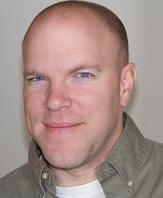 Chris Hambleton resides in Denver, Colorado, where he is employed as a software developer and consultant. He has authored several websites, software applications, and other programming-related articles.
Chris Hambleton resides in Denver, Colorado, where he is employed as a software developer and consultant. He has authored several websites, software applications, and other programming-related articles. Chris is also the creator and administrator of BookBlitzer.com, a website that helps authors get more exposure for their books through reviews, contests, and other networking tools. In 2008, he developed the iWriterPro book-writing software to help authors manage and write books more efficiently.
His other interests include spending time with his family, reading, hiking, studying Bible prophecy, Ice Age/ancient civilizations, and archaeology.
To learn more about Chris Hambleton and his other books and writing, please visit his website at http://www.cwhambleton.com
Other Books by Chris Hambleton"Endeavor in Time" (2008)"The Cell – Twilight's Last Gleaming" (2010)"The Last Aliyah – Book 1 of The Time of Jacob's Trouble" (2011)"The Son of Shinar – Book 2 of The Time of Jacob's Trouble" (2011)"The Siege of Zion – Book 3 of The Time of Jacob's Trouble" (2011)"The Castors of Giza" (2011)
Connect with Me Online:Website: http://www.cwhambleton.comFacebook: http://www.facebook.com/cwhambletonTwitter: http://www.twitter.com/chris_hambleton
Tell us about "The Time of Jacob's Trouble" in a few sentences.My current book is part of a trilogy called "The Time of Jacob's Trouble" – it's a saga about an Israeli family as it goes through the End Times as described in the Bible. It was the first novel I wrote in 2008, but I decided to rewrite it after touring Israel in 2010. The trilogy heavily builds upon current trends in the Middle East and weaves in passages from various parts of the Bible (especially the Book of Daniel and the Book of Revelation). I also have another book in progress called "The Castors of Giza" which is a adventure story about how the Great Pyramid was built.
What qualities do you need to be a successful writer?First and foremost, you need to have a good story to tell, one that hopefully can catch (and hold) your readers' interest. Secondly, you need to be able to describe characters, settings, and scenes in such a way that the reader feels like they can 'see' what's happening as though they were watching it in the theater or on television. Third, you need passion and a certain 'flair' for story-telling.
What is your working method?Typically, I start with a handful of ideas for a story and weave in an underlying message I want to communicate, such as repentance, forgiveness, etc. From there, I begin adding in the main characters and secondary characters, along with some of the scenes I think would catch the readers' attention. Then I begin plotting out the book in rough chapters and scenes, and then plug them into the writing software I use – iWriterPro (http://www.iwriterpro.com). I developed this software specifically for writing novels in 2009, and it's been one of the best investments of my time I've ever made.
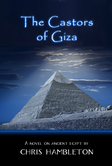 What is the single biggest mistake made by beginners to writing?
What is the single biggest mistake made by beginners to writing?For myself, it was not reading "Self-Editing for Fiction Writers" before writing my manuscript. I found I spent far too much time describing scenes and settings to the reader instead of showing them through the eyes of the characters. I used to have a big issue with "telling" instead of "showing", which I'm getting better at. The trick of seeing and writing novels from the perspective of a camera was a big help in improving my books.
How did you come to write this particular book?I first took a passing-interest in Bible prophecy in 1996, and then in 1998 began to study it much more seriously. In 2006, I began writing "The Time of Jacob's Trouble", which was then published in 2008. Several years later in 2010, I was fortunate enough to visit Israel on a study-tour, and I saw for myself the miracle of modern Israel.
When I reviewed my book after visiting Israel and learning more about the land and its people, I realized there were numerous inaccuracies that I felt compelled to resolve. Several reviewers also recommended that the original book be divided into three and expanded to focus more on the characters than the mere circumstances/settings of the End Times.
If you have a favorite character in your novel, why that particular one?Since most of my books have underlying themes of redemption and spiritual change, my favorite characters are usually the main character (or one of their friends or supporting characters), who the stories revolve around. Some sort of spiritual transformation is nearly always involved in the plot and in the development of the character.
How can people buy your book(s)?
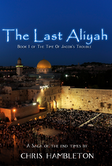 My books are available on my website at http://www.cwhambleton.com, and also at Amazon.com, Barnes and Noble, Smashwords, and most other book sites. "The Last Aliyah" is the first book I'm releasing exclusively in eBook format rather than paperback.
My books are available on my website at http://www.cwhambleton.com, and also at Amazon.com, Barnes and Noble, Smashwords, and most other book sites. "The Last Aliyah" is the first book I'm releasing exclusively in eBook format rather than paperback.To what extent are grammar and spelling important to a writer?Spelling and grammar are quite important, as they directly reflect on the time and care the writer has put into their manuscript – not necessarily their story, but their finished work. However, sometimes proper grammar can interfere with the beat and dialogue in the story, so using proper grammar may not always be the best way of communicating your story. For example, "Tom Sawyer" and "Huckleberry Finn" would sound terrible if Twain had used "proper grammar".
How much revision of your MS do you do before you send it off?Typically, I revise a manuscript at least three times after the initial draft, with typically a "week off" between revisions. When I find I start to hate the story/book, I know I'm about done with it.
Where and when is your novel set and why did you make these specific choices?My latest novel, "The Last Aliyah", is set in the near future in various parts of Israel, but predominantly in the north at Haifa. I decided to have the story take place in Israel because that's where most of the 'action' in the End Times occurs, and I had noticed that few other authors had placed their End Times story predominantly in Israel and from the perspective of the Jewish people.
To what extent do you think genre is useful in the publishing world?I think the importance of genre depends largely upon the author and their purpose (such as trying to make a living from their work). My genre would likely be much different if I was trying to sell thousands of books a year. However, since novel-writing is primarily my hobby and an "escape" from the exciting world of software-development (LOL), I have the freedom to write what I want, when I want, and how I want.
What are your writing habits?I do most of my writing with the book-writing software I've developed called iWriterPro (http://www.iwriterpro.com). I will often go to a coffee-shop either early in the morning or after work to hammer out the manuscript (especially the first draft). Much of the revision-phase then takes place either at home in the evenings or before work.
How do you know where to begin any given story?I typically "sketch" out the book in my head in the weeks/months before I begin working on it and jot down some notes or rough scenes I think would make a good story/plot. Once I think the plot is workable, I create a rough plot outline and then develop it. If the story makes it through that phase, the story-writing phase is ready to begin.
As for where to begin a story, I often try to throw the main characters right into the action from the beginning and start off the story with a BANG! to get the reader immersed in the story as quickly as possible. I'm a big fan of "24" and "Lost", and that was a hook those screenwriters always used quite effectively.
What sort of displacement activities keep you from actually writing?Since I'm still working full-time as a software developer, my work schedule cuts into the time I'd love to spend writing, along with family time and church/friend activities. Also, I'm in the process of creating several websites/services centered around authors-helping-authors and social-networking (such as http://www.bookblitzer.com), and those development/support activities cut into my time also.
Do you have support, either from family and friends or a writing group?Certainly! My family, friends, and extended family have been very supportive in my work. Sometimes I feel bad about announcing/giving them my books all the time, since it seems like a new one is always coming out.
Is presentation of the MS as important as most agents and publishers suggest?Yes – agents and publishers know what looks good and what is sellable (according to the market). If they've defined a format that sells better than others, then that's what authors should try to use.
How long does it normally take you to write a novel?I can usually crank out a first draft between 2 and 3 months, especially if I've been thinking about the story for awhile and have done much of the research beforehand. I love reading, and often a story will emerge from the various books I read. Often I'll have several stories bouncing around in my head for months or sometimes even years before I actually begin writing them. The trilogy I'm starting later this year, "The Starstone Chronicles", has been in my head for about five years now.
What are your inspirations?My main inspirations are other authors who have written great stories – not necessarily the best-selling authors or books, but the best stories that I can identify with and relate to. There have been several books I've encountered where I've literally shouted, "I WAS GOING TO WRITE THAT!" and that inspires me to keep pushing. The potential of making money in the book-industry doesn't really inspire me at all compared to being able to tell a great story (though making some good side-cash would be nice).
If there's a single aspect to writing that really frustrates you, what is it?The part of writing that really bothers me is finding extra or dropped words in my books once they're in print. Something else that bugs me is when I think of a scene or character that I could've added to the story to make it better after the book has already been published. That's one of the reasons I've transitioned over to writing eBooks, since I can improve them anytime I want without much cost or hassle.
Do you think writing is a natural gift or an acquired skill?I think it's a bit of both a natural gift and an acquired skill. I've heard that everyone has story inside them and just needs to drawn out, and I believe that's true – the gift is being able to extract that story and turn it into a book (or several books). The "acquired skill" portion is developing that gift and turning it into a craft.
What are you writing now?My current work in progress is called "The Castors of Giza", which takes place in ancient Egypt during the design and building of the Great Pyramid of Giza. I'm very excited about it, since the idea for the book suddenly came about in early 2011 and was completely unexpected, and it gives me an opportunity to learn about a country/era I am relatively unfamiliar with.
Is there any aspect of writing that you really enjoy?I particularly enjoy the research and plot-development phase of writing slightly more than working through some the scenes and dialogue (which can get tedious at times). And of course, I like thumbing through the finished product (or clicking through it, such as with my eBooks).
Do you have a website or a blog that readers can visit?Sure – my blog is http://fictionsoftware.wordpress.com and my author-website is http://www.cwhambleton.com. My Facebook fan-page is under "Chris Hambleton (Author Page)" and my Twitter feed isat @chris_hambleton. I also run a website at http://www.bookblitzer.com which helps authors get reviews for their books and also provides other author-related services.
Given unlimited resources, what would be your ideal writing environment?My ideal writing place would be at a beach-house somewhere sunny and warm, though I probably wouldn't get as much writing done.
Where do you actually write?I do most of my writing at Starbucks or Caribou Coffee, or at least the rough scenes and dialogue. A lot of the finishing work takes place at home after the kids go to bed or early in the morning. I find that I don't write very well unless there are other people around, as long as there aren't many interruptions.

Published on May 26, 2011 08:30
Stuart's Daily Word Spot: Alright or all right
 Image via Wikipedia
Image via WikipediaAlright is considered as substandard. The correct term is 'all right.': adverbial, adjectival, & noun phrase - as desired; duly; satisfactorily; certainly, indeed; In good condition; safe and sound; satisfactory, acceptable; An interjection of acquiescence, assent, or acknowledgement; a noun phrase, as in 'a bit of all right' - someone or something very pleasing. Although 'alright' is often considered wrong, analogous forms such as 'already', 'although', etc. have long been accepted. Just one more example of the irregular nature of the English language.
'Tell you, what, Jimmy; that J-Lo's a bit of all right.'
'All right, all right! Let's have a little calm here, please; it's only a small fire, not a conflagration about to consume you all.'

Published on May 26, 2011 07:00
May 25, 2011
Writing: 1500 Words After Lunch
 Lone tree1500 words; good, at that. My epic fantasy revolves around a pilgrimage undertaken by members of one of the religions I invented for the novel and today I had reason to introduce a variant of the main sect. It livens up the action as well as providing an opportunity to highlight more human frailties and strengths. The next couple of sections will be more active, as the other two threads of the story are both at a quite fast-paced stage. Hopefully, I'll make a good start on one of those tomorrow, early. I'm intending to spend the day cleaning and tidying my study; a job I've put off for the past 3 years or so. This weekend we have a Bank Holiday, so I'll have a bit more spare time and it seems like an ideal opportunity. Apart from anything else, it'll mean i don't have to spend ages seeking out things when I need them.
Lone tree1500 words; good, at that. My epic fantasy revolves around a pilgrimage undertaken by members of one of the religions I invented for the novel and today I had reason to introduce a variant of the main sect. It livens up the action as well as providing an opportunity to highlight more human frailties and strengths. The next couple of sections will be more active, as the other two threads of the story are both at a quite fast-paced stage. Hopefully, I'll make a good start on one of those tomorrow, early. I'm intending to spend the day cleaning and tidying my study; a job I've put off for the past 3 years or so. This weekend we have a Bank Holiday, so I'll have a bit more spare time and it seems like an ideal opportunity. Apart from anything else, it'll mean i don't have to spend ages seeking out things when I need them.No writing group meeting tonight: a lot of the group are otherwise engaged and a couple not well, so we decided to cancel. So, having finished reading The Gathering Storm and reviewed it (see post below) and done a good piece on the novel, I'm going to have a relaxing evening with my wife.

Published on May 25, 2011 11:54
The Gathering Storm by Robert Jordan, Reviewed
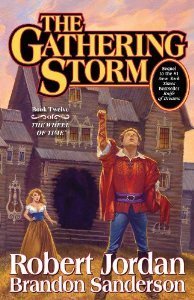 Cover via Amazon
Cover via AmazonThe Gathering Storm is a mighty tome of a book (I calculate it at around 325,000 words, which is big, even by normal fantasy standards) and took me a while to read. One of the times I wished a book had been available for Kindle, as the weight would have been easier on my aching arms.I must preface this review by confessing that I have not read all the previous 11 books in The Wheel of Time series; in fact, I've read only a couple. So, some of the terms, names and affiliations were confusing to begin with, but I soon knew where I was and where the story was going, so to speak. It is a work on an epic scale and was, of course, actually written by Brandon Sanderson, working from copious notes and incomplete work from the original author. The story is an intricate weave of many threads, which form a whole that is completely satisfying. The language is clear, evocative and appropriate throughout, with no slips into anachronism. Characters, although fully drawn in previous volumes, appear as real on these pages as though they have been created for this book. The settings are fully described, allowing the reader an experience that involves rather than on that simply tells of detail. The element of magic is restricted, making the tale reliant as much on the humanity of the characters as on their ability to weave spells and use their special gifts and properties. This is, for me, essential in epic fantasy. The overuse of magic reduces the empathy a reader may otherwise feel for the characters and this aspect has been avoided here. I will not make any attempt to convey the storyline here. There are over 750 pages of text and very few wasted words. Any attempt to précis the plot must inevitably do the work an injustice. As usual, my review is concerned with the quality of the writing and the depth of the story told.Just occasionally I wondered at the number of names I came across: on one page, I noted twenty new names of characters and/or places.But this is a very satisfying tale. Clearly, readers will benefit from their greater background knowledge of characters and events if they have read the whole series, but the lack of such experience results in only a small amount of confusion, which is quickly resolved as events unfold in the context of the story.Anyone who has read and enjoyed Richard Adam's Maia or The Lord of the Rings, amongst others, will enjoy this book. I happily recommend it and look forward to the final two volumes, still under construction as I write this.

Published on May 25, 2011 07:21
Stuart's Daily Word Spot: Cabin
 High in the Yorkshire DalesCabin: noun - room or compartment in a ship, boat, spacecraft, lorry etc., for passengers, crew or cargo; berth in a ship; temporary shelter, a booth; a poor dwelling, small room, cell; natural cave or grotto, animal's den; litter for carrying someone; political cabinet – a collection of government appointees.
High in the Yorkshire DalesCabin: noun - room or compartment in a ship, boat, spacecraft, lorry etc., for passengers, crew or cargo; berth in a ship; temporary shelter, a booth; a poor dwelling, small room, cell; natural cave or grotto, animal's den; litter for carrying someone; political cabinet – a collection of government appointees.'The lorry driver invited the lady of the night into his cabin but she declined, preferring the roomier accommodation available in the following Rolls.'
'Jason was bragging to the attractive woman on the cruise that he was occupying an outside cabin, but this proved ineffective as a means of impressing her as she was housed in luxury suite, complete with a baby grand.'
Unusually, Zemanta failed to provide a suitable 'free' picture, so here's one from my own collection. This also has no relevance to the subject matter, but I like it.

Published on May 25, 2011 07:00
May 24, 2011
Writing: Not a Serious Word was Placed
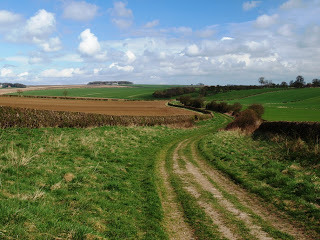 Little Driffield, Horse Fair Lane.Yesterday, as regulars will know, was dance class following the day at the office. No writing, but I did enjoy a documentary on TV about the background to the recent economic collapse. Today is now my long day at the office and I usually arrive home in no fit state to do more than respond to the emails that have flown in during the day.
Little Driffield, Horse Fair Lane.Yesterday, as regulars will know, was dance class following the day at the office. No writing, but I did enjoy a documentary on TV about the background to the recent economic collapse. Today is now my long day at the office and I usually arrive home in no fit state to do more than respond to the emails that have flown in during the day.But I had a couple of ideas in the night and placed them on one of my many notebooks placed strategically about the house for just that purpose. Tomorrow, I finish early and may even do some writing between the end of the office job and the weekly visit to my writing group. With luck!

Published on May 24, 2011 12:57
Stuart's Daily Word Spot: Apostrophe
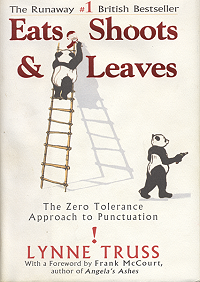 Image via Wikipedia
Image via WikipediaApostrophe: noun - punctuation, an inverted comma that designates either possession or a contraction of a word or phrase; an address to a person, place or thing not currently present; exclamatory address or passage to a particular person or thing.
'In "Eats Shoots and Leaves", Lynne Truss has provided a humorous, entertaining but scholarly treatise on the misuse and proper usage of, amongst others, the much abused apostrophe, as a punctuation mark.'
'The simple way to remember whether you should use "it's" or "its" is to decide whether or not you could substitute "it is", in which case, the contracted form, "it's" is appropriate.'

Published on May 24, 2011 07:00
May 23, 2011
Stuart's Daily Word Spot: Bacchanalia
 Image via Wikipedia
Image via WikipediaBacchanalia: noun - Roman festival in honour of the god of wine, Bacchus; drunken revelry, an orgy.
'If you go out on a stag night organised by Reginald, you're likely to find yourself involved in a regular Bacchanalia with plenty of drink, stripagrams, wanton women and the lot.'

Published on May 23, 2011 07:00
May 22, 2011
Writing: 2500 words this time
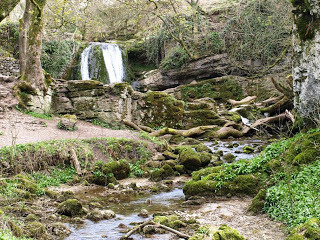 Janet's Foss, Malham Dale. Once the habitation of a female hermit.The morning brought a promise of rain that was never fulfilled. But my early rise had me pounding the keys and producing 2500 words. So Ch 29 is complete and Ch 30 is begun. Some great action scenes, which is why I wrote more quickly than usual, I suspect: action requires short, snappy sentences and these tend to speed off the fingers, don't they? One of my main characters is now in peril and another 3 are trapped in a serious situation. Will they escape? Ah, that would be telling, and I don't intend to let anyone know until the book is published.
Janet's Foss, Malham Dale. Once the habitation of a female hermit.The morning brought a promise of rain that was never fulfilled. But my early rise had me pounding the keys and producing 2500 words. So Ch 29 is complete and Ch 30 is begun. Some great action scenes, which is why I wrote more quickly than usual, I suspect: action requires short, snappy sentences and these tend to speed off the fingers, don't they? One of my main characters is now in peril and another 3 are trapped in a serious situation. Will they escape? Ah, that would be telling, and I don't intend to let anyone know until the book is published.On a different note, the family went for a pleasant walk of around 6 miles across hilly country around the village of Huggate this afternoon. Some lovely scenery, but this clot forgot to check his camera battery and ended up without power less than halfway round! On the way home, we popped into one of the best fish and chip shops in the area; the shop at Wetwang (yes, that's the name of a real place - for those of you who are relatively local, Paul Hudson, the weatherman, is the nominal mayor there.) But now I'm knackered and in need of a rest, so this is it for the night.

Published on May 22, 2011 12:05



